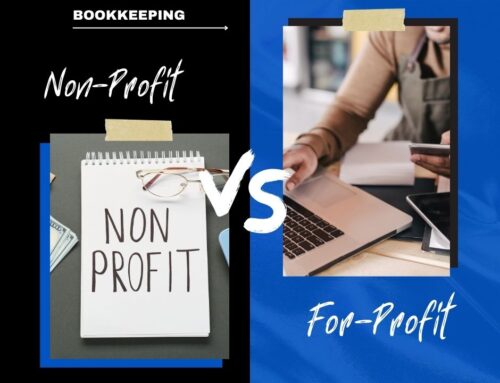Not every business owner is a finance expert.
That’s nothing to be ashamed of. You can still run a successful business with limited knowledge of accounting and bookkeeping. All you must do is delegate responsibilities to people who are properly trained.
But even if you’re hiring an outsourced bookkeeper or interim CFO to handle your accounting department, you still need to be familiar with the basics.
At the end of the day, the business is yours. You need to be able to have an educated conversation with your bookkeeper, accountant, and CFO.
I’m not saying you must make complex, long-term cash flow forecasts, or assess financial risks for the company. It’s the responsibility of a trained CFO to handle things like that.
However, every business owner should know basic accounting terms, roles of different positions, and know some of the main differences between accounting methods.
I created this beginner’s tutorial to bookkeeping as a cheat sheet for small business owners.
You can always use this as a reference or guide if you need to refresh your memory on some of the basics.
Understanding Different Financial Roles
Depending on the size of your operation, you’ll have multiple positions in your accounting department. Each position will have different responsibilities.
There are a few options for you to consider.
You could hire each position as an employee on your payroll and delegate tasks to each person. While this method works, it might be too expensive for most small business owners to implement.
That’s why so many small businesses take shortcuts and have one person handling all these responsibilities. While it might sound like a good way to save some money today, it’s not a sustainable or scalable solution for the long-term growth of your company.
Outsourcing bookkeeping services will be the best option for most of you. You’ll get all these roles through one company, without incurring the costs associated with hiring an employee.
Bookkeeper
Bookkeepers manage all the day-to-day accounting responsibilities. It’s their job to do daily deposits, pay the bills, and manage payroll. The bookkeeper prepares your balance sheet, income statement, and cash flow statement. These are three essential financial reports for your small business bookkeeping.
While the bookkeeper will record transactions associated with your sales, expenses, accounts payable, and accounts receivable, they don’t make any decisions involving the company’s financial strategy.
Accountant
Most accountants are CPAs, so they have more training and financial knowledge than your bookkeeper. In many cases, your accountant can help you with your company’s finances, as well as your personal finances.
Accountants offer financial guidance, audit your books, and prepare and file your tax returns. An accountant can also aid and represent the company during a third-party audit.
Controller
The controller acts as a manager that oversees your bookkeeping operations. They will also supervise any other lower-level roles in your accounting department.
A controller will usually be the one who chooses which accounting software your company will use. Not every small business will have a controller. Sometimes, the CFO takes on these responsibilities. It’s more common for controllers to be brought on board as businesses scale.
CFO
The CFO holds the executive role in your accounting department. It’s their job to focus on the big picture of the company, as opposed to the daily record keeping done by a bookkeeper.
A chief financial officer will analyze trends to make short-term and long-term forecasts for your company and industry. They’ll review your financial reports to help you predict and manage cash flow as well.
It’s the job of a CFO to guide a company through an acquisition, merger, or IPO. This is also a crucial role during the planning phases of a company expansion. You should consider an interim CFO to take on these important responsibilities.
Single-Entry vs. Double-Entry Bookkeeping
With single-entry bookkeeping, all transactions are recorded in one ledger. This method is only suitable for sole proprietors or freelancers who have a simple business and are looking for a quick and easy way to manage their finances.
Double-entry bookkeeping is the best option for most companies. The whole idea behind the double-entry method is that you record each transaction with a debit and a credit. By doing so, you’ll be able to track where your money comes from and where it goes, while always keeping the accounting equation balanced.
Cash Accounting vs. Accrual Accounting
Cash accounting means that you record transactions whenever cash is transferred from one party to another. This system is commonly used by owners who have a small, one-person operation.
For those of you who have a small business or larger operation that is more complex, you’ll be better off using accrual accounting. If you’re buying supplies or inventory on credit or offering credit to your customers, you’ll record transactions right away, even if cash doesn’t change hands until a later date. These transactions will be tracked and recorded with accounts payable and accounts receivable.
Defining Basic Accounting Terms
To keep your books balanced, you need to know and understand the accounting equation.
Assets = Liabilities + Equity
These are terms are going to be used on your balance sheet. You also need to know the basic terms used on an income statement (revenue, expenses, costs).
I just want to quickly explain each of these basic terms, so you have their definitions as a resource.
Assets
Assets include things like cash, securities, inventory, and accounts receivable. Your buildings, equipment, and any land you own will be listed as a fixed asset on your balance sheet. These are all tangible.
Some companies also have intangible assets like trademarks, copyrights, patents, and goodwill.
Liabilities
Liabilities can be segmented into two groups:
- Current liabilities
- Long-term liabilities
Your current liabilities will include accounts payable (such as credit cards, short-term loans, and money owed to suppliers) as well as accruals (such as taxes). Anything that’s not due within the next 12 months is considered a long-term liability.
Equity
Equity accounts show all investments that an owner has in the company. As a small business owner, you might be the only one in this account. But for those of you who have partners or other investors, it will all be accounted for here.
Revenue
Revenue gets reported on an income statement. This can be defined as the income made by a company as the result of selling products and/or services.
Expenses
All the money that’s used to run the business can be considered an expense. Expenses are not tied directly to products or services that you sell. For example, employee wages are recorded as an expense.
Costs
Costs are better known as COGS (costs of goods sold). Unlike expenses, this refers to money that was spent to buy or produce any goods or services that were ultimately sold to the customer.
Conclusion
Even if you don’t have bookkeeping experience and have no plans to take on the responsibilities in your accounting department, you still need to know the basics.
I’d recommend bookmarking or keeping this guide close by as a quick reference to help you out.
If you’re looking for a well-run accounting department, but can’t afford to hire and manage a bookkeeper, controller, and CFO, you should consider outsourcing your bookkeeping services as a cost-effective alternative. Here at Navitance, we specialize in startups, so we’re used to helping beginners.





